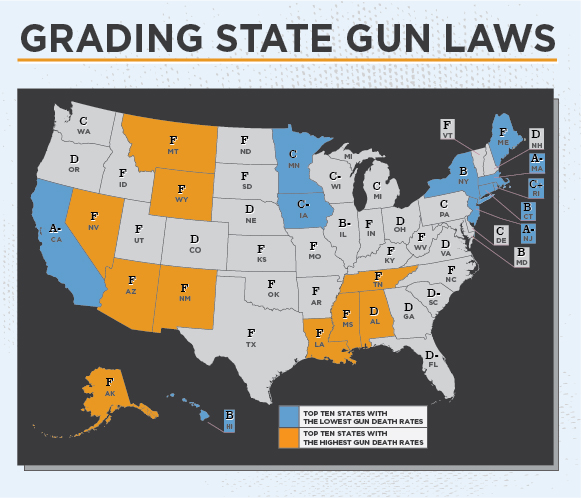States with Strict Gun Laws: Why They Matter

States with the Strictest Gun Laws
According to the Giffords Law Center, the following states have the strictest gun laws:
- California
- Connecticut
- Hawaii
- Illinois
- Maryland
- Massachusetts
- New Jersey
- New York
- Oregon
- Rhode Island
- Washington
Advantages of Strict Gun Laws
Strict gun laws have several advantages:
- Reduced gun violence: States with strict gun laws have lower rates of gun-related deaths and injuries.
- Increased public safety: Stricter gun laws help prevent guns from getting into the hands of criminals and other dangerous individuals.
- More responsible gun ownership: Strict gun laws require background checks, waiting periods, and other regulations that promote responsible gun ownership.
Disadvantages of Strict Gun Laws
Strict gun laws also have some disadvantages:
- Restrictive: Some people argue that strict gun laws infringe on their Second Amendment rights to bear arms.
- Costly: Implementing and enforcing strict gun laws can be expensive for states and local governments.
- Ineffective: Critics of strict gun laws argue that they do not actually reduce gun violence or prevent mass shootings.
Impact of Strict Gun Laws
The impact of strict gun laws is a topic of debate, but there is evidence that they can be effective. According to a study published in JAMA Internal Medicine, states with stricter gun laws have lower rates of gun-related deaths. Additionally, a report by the Center for American Progress found that states with stricter gun laws have lower rates of gun violence overall.
FAQ
1. Do strict gun laws violate the Second Amendment?
There is ongoing debate about the interpretation of the Second Amendment and whether strict gun laws violate it. However, the Supreme Court has upheld the constitutionality of some gun regulations, such as background checks and waiting periods.
2. Can strict gun laws prevent mass shootings?
While no single policy can prevent all mass shootings, strict gun laws can make it more difficult for individuals to obtain and use firearms for violent purposes.
3. Are gun laws effective in reducing gun violence?
There is evidence that states with stricter gun laws have lower rates of gun-related deaths and injuries. However, it's important to note that gun violence is a complex issue with many contributing factors.
4. How do strict gun laws impact responsible gun owners?
Strict gun laws can promote responsible gun ownership by requiring background checks, waiting periods, and other regulations that help prevent guns from getting into the hands of individuals who may misuse them.
Conclusion
States with strict gun laws play an important role in promoting public safety and reducing gun violence. While there are disadvantages to strict gun laws, there is evidence that they can be effective in preventing gun-related deaths and injuries. It's important for policymakers and citizens to continue the conversation around gun control and work towards solutions that prioritize public safety while respecting Second Amendment rights.
